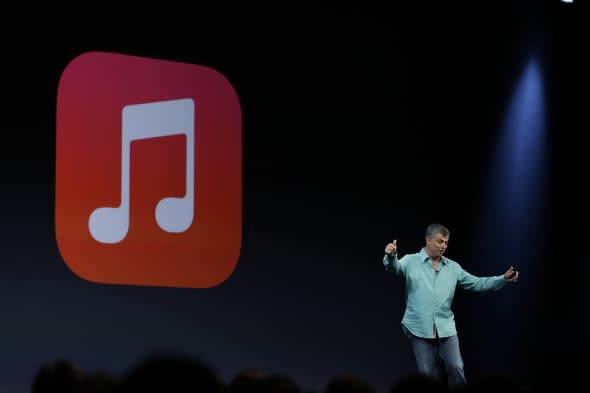Eddy Cue testifies: Apple once contemplated licensing its Fairplay DRM to competitors

With Apple's iPod class action lawsuit underway, Apple executive Eddy Cue took to the stand today and testified about Apple's implementation of DRM on iTunes music files back in the mid-2000s. Recall that the current suit alleges that Apple actively took measures to prevent songs purchased from competing music stores from playing on the iPod. What's more, Apple even went so far as to subtly remove unauthorized songs from users' iPods by instructing them to restore their device to factory settings. For its part, Apple argues that this was done to prevent malicious activity.
In any event, Cue -- known as an integral part of Apple's negotiating team -- spoke today about Apple's original implementation of DRM on the iTunes Music Store. While cynics are quick to argue that Apple engaged in anti-competitive behavior, Cue relayed that Apple, in fact, wasn't keen on DRM at the outset. On the contrary, Cue emphasized a fact that has been repeated time and time again: namely that the implementation of DRM was done at the behest of music executives fearful of music piracy gone wild.
Interestingly enough, The Verge reports that Apple, per Cue's testimony, at one point contemplated licensing their homegrown DRM technology, dubbed Fairplay, to the market at large.
"We thought about licensing the DRM from beginning, it was one of the things we thought was the right move that because we can expand the market and grow faster," Cue told the court. "But we couldn't find a way to do that and have it work reliably."
The Verge report adds some color as to why Apple didn't ultimately go down this route:
As issue, Cue said, were things like interoperability with the growing multitude of MP3 players. New devices from other companies would come out, and might not work with that system. "Others tried to do this, and it failed miserably," Cue said. "One of those was Microsoft." Cue also noted that when Apple first floated the idea of the iTunes Store to record labels, that they rebuked the idea because they had their own stores with DRM systems that could be different from song to song, and from device to device.
DRM-laden music on the iTunes Store was long a controversial topic as it famously, and frustratingly, prevented consumers from playing music they owned on competing devices. While there were workarounds such as burning purchased songs to a CD and uploading them back up to iTunes, the problem still annoyed many users before Apple ultimately did away with DRM restricted music in late 2009.

